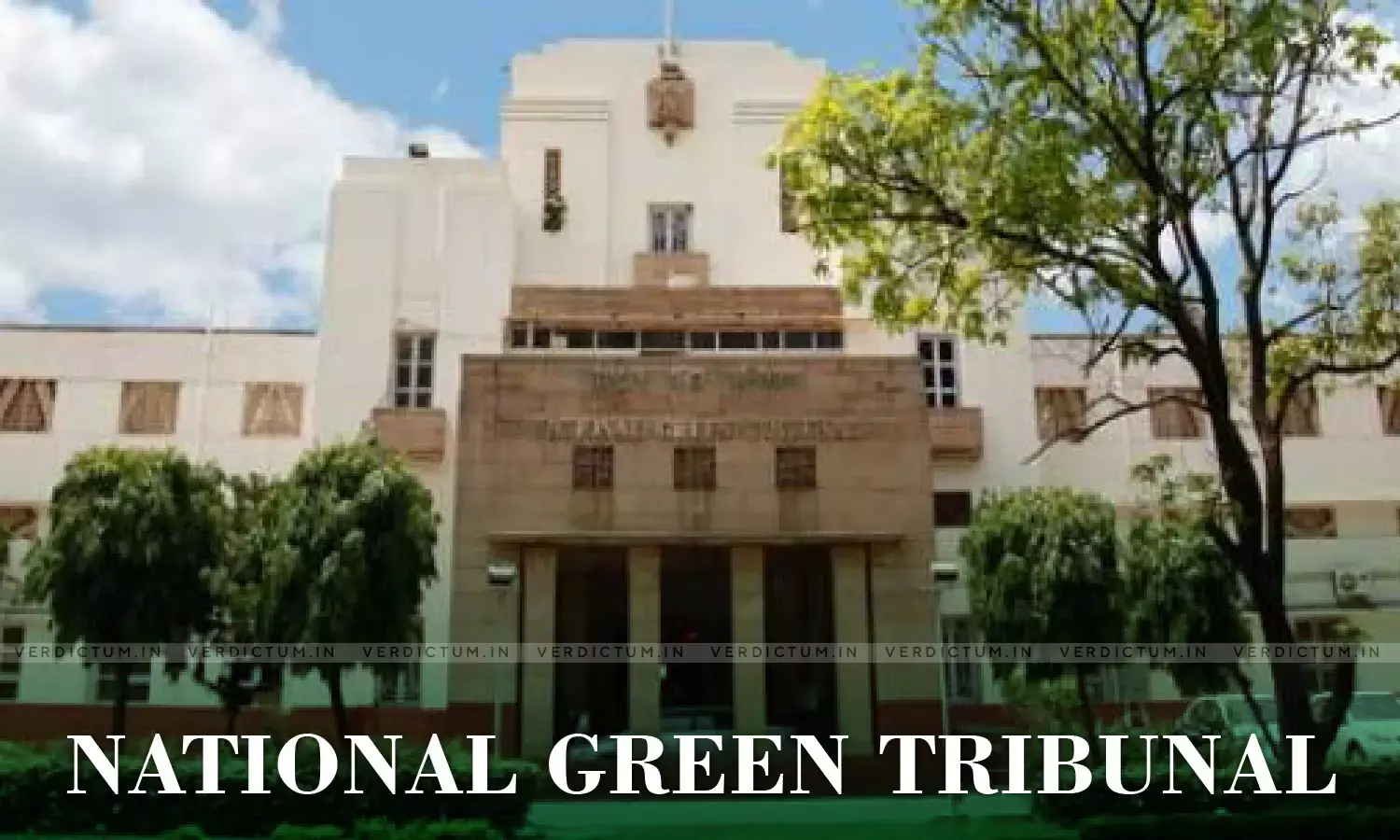Nearly 50 Per Cent Of Untreated Sewage Continue To Be Discharged In Ganga- NGT Issues Directions To National Ganga Council

Untreated sewage and effluents continue to flow into the River Ganga even after decades of monitoring, the National Green Tribunal has said, noting that the National Mission for Clean Ganga does not appear to be in a position to take stringent measures against non-compliance.
While seeking an action taken report from the National Ganga Council (NGC) on the matter, a bench comprising of Chairperson Justice Aadesh Kumar Goel, Judicial Member Justice Sudhir Agarwal and expert member A. Senthil Vel observed that the quality of water in Ganga has to be as per norms as it is used not only for bathing but also 'achman' (taking sips of water before prayers or rituals).
It directed the Member Secretary, NGC to file an action taken report before October 14, the next date of hearing.
Even after decades of monitoring, still nearly 50 per cent of untreated sewage and substantial industrial effluents are continuing to be discharged in the river or its tributaries/drains, in absence of requisite functional treatment capacity, the NGT said.
"Instead of indefinitely continuing the proceedings without success, as has happened in the last 37 years, we suggest that the Member Secretary, NGC i.e. DG, NMCG may place the agenda of reviewing the existing mechanism for executing the work of setting up and maintaining requisite treatment systems to ensure prevention of pollution of Ganga in the next meeting of the NGC, which is the highest authority under the 2016 Ganga Order, preferably within one month or as early as possible," it said.
The NGT said in view of the disappointing factual position, a paradigm shift in execution and monitoring appears to be necessary.
The tribunal said it appears that execution by State authorities is not adequate, too slow and lacking ownership and the National Mission for Clean Ganga does not appear to be in a position to take stringent measures against non-compliances and failure to achieve goals in a time bound manner.
"In dealing with such a long pending challenge, the executing agency has to be proactive and effective, with simpler and flexible procedures and timelines being sacrosanct. There has to be zero tolerance to further delay. Working has to be goal oriented with defined accountability, followed by strict consequences for defaults. It may not be advisable to fix loose and convenient distant timelines with no consequences for breach. At the moment the reverse is happening," it observed.
"None is accountable for breaching the timelines in the last four decades. Blame is shifted from one authority to another. In dealing with Ganga pollution, there has to be a change in attitude of those who have to execute remedial measures. Unless such change takes place, no purpose is achieved in the ritual of monitoring by this Tribunal and direction of the Supreme Court for effective monitoring is defeated," the bench said.
The NGT said close monitoring by the Tribunal even in recent years shows that progress in preventing discharge of sewage and trade effluents is not taking place on expected lines.
"Either the necessary treatment systems are yet to be set up at several locations or STPs/treatment facilities established are not fully functional. There is unacceptable and unchecked delay with no accountability", the Tribunal said in its order.
"Substantial funds are provided by the NMCG without expected results. Reasons for not achieving results may be due to tardy processes or lack of effective credible mechanisms. Timelines have kept changing conveniently since decades. Even now there is no commitment for any fixed timeline in future, to the great and irreversible detriment of Ganga," the Bench said.
This disappointing state of affairs needs change which is possible with the intervention of highest authority under the 2016 order, it said.
"With every interval of time, there should be graphic reduction in pollution load which is not happening. It is high time that alternative credible executing mechanisms are explored so that treatment systems are established and operated in a fixed timeline and errant persons are made accountable so that not a drop of pollution goes to Ganga. Such a mechanism may be accountable to NMCG, subject to final control of the NGC in term of the 2016 Order," the Bench said.
The Tribunal said that an alternative agency to be identified must be credible in terms of performance - Governmental, Private or Hybrid.
"It may be called SPV or otherwise. It has to be tasked to ensure setting up of 100 per cent treatment capacity of sewage within specified time, not exceeding one year. The quality and discipline control of the agency can remain with the NMCG, subject to final control of the NGC, in terms of the 2016 Order", it said.
"All other statutory powers in terms of 2016 Order can be exercised by the prescribed authorities to achieve the objectives mentioned in the order. The capacity should cover not only the current waste water generation but also the projected generation in a reasonable future," the Bench said.
Cause Title: M.C. Mehta v. Union of India & Ors.
Click here to read/download Order
With PTI inputs

